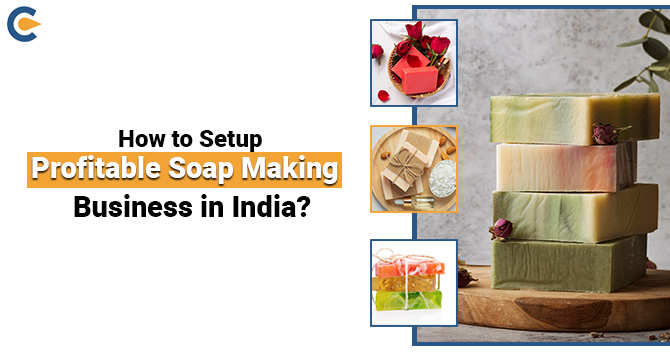More than two-thirds of the globally marketed coir and coir-related products are produced in India. India does have a long coastline covered in coconut palms. Still, significant coconut-growing regions and Territories like Karnataka, Orissa, Maharashtra, Andaman & Nicobar, Pondicherry, Tamil Nadu, Goa, Lakshadweep, Kerala, Assam, and others are where the coir business or industry is growing and reaping economic benefits. It has about 5.5 lakh employees working in this business. The yearly export generated by the coir business in India is around 70 crore rupees. Scroll down to check more information regarding Coir Business in India.
Overview of Coir Board of India
Coir Board of India is established by the Ministry of MSME under the Government of India. It started functioning on 7th July 1954. It is regulated by the Coir Industry Act, 1953. The Act generally regulates functions like fixing the grade standards, arranging the coir fibre, Inspection of Coir Fiber, Coir yarn and other Coir products under Section 10.
The Coir Board was also actively involved in setting up the Standard specifications for coir products under the Bureau of Indian Standards. BIS has also constituted the following committees for the formulation and revision of specific standards-
(i) Coir and Coir Products Sectional Committee (TDC-50)
(ii) Coir Fiber and Coir Yarn Sub-Committee (TDC-50:5) and
(iii) Coir Products Sub-Committee (TDC-50:6)
India’s Coir Udyami Yojana (CUY) – An Overview
The Government of India created the Coir Udyami Yojana (CUY)[1], a credit-linked subsidy program, to create coir units. India’s coir industry is developing, particularly in the southern regions where numerous factories produce a wide range of coir products. The Coir Board’s primary responsibility is to increase production and market the products globally. The Coir Board started the Coir Udyami Yojana program to help the micro and small-scale coir industries.
List of Products Obtained from Coir
Following is the list of products obtained from Coir:
1. Coir pith
2. Yarn
3. Fibre
4. Coir pith block
5. Cocopot
6. Coir door mats
7. Cocopeat moulds
Machinery Required for Running Coir Business in India
The conventional method of extracting coir is time and labour-intensive. Using machinery in a coir business can save a lot of hard work and time.
The cost of the various machines used to extract coir fibre varies according to their capacity, working model, and durability. In India, most coir machine producers are found in well-known cities like Coimbatore, Pollachi, and Alappuzha.
Most owners of coir businesses typically purchase the entire machinery setup from a single manufacturer as opposed to several dealers. This enables owners to contact the producer and receive quicker assistance during maintenance or breakdowns. A coir processing setup typically costs between 15 and 20 lakhs.
Here is a list of some machines used for the production of coir-
- Machine for de husking coconuts
- Crusher Machine
- Disintegrator machine
- Decorticator
- Coir Pith screener
Materials Required to Start a Coir Processing Unit
- Raw materials
The primary raw material for setting up a coir business is coconut husk. Its interior comprises numerous layers of fibre called coir or fibre.
- Location
Establishing a coir processing unit in a rural area with many coconut plantations is best for the coir business. In addition to lowering the cost of workers, this also reduces the transportation costs for raw materials.
- Land
The coir business must have at least 1 acre of land for setting up a coir extraction unit because the unit requires a lot of space-consuming machinery. Usually, a large shed is used to set up all the equipment. Coconut husks, the raw material, are kept in huge piles outside the plant.
- Water
Water is a necessary resource for a coir processing unit to function. Once the raw coconuts are plucked from the tree, the husks must be softened by retting them in huge water tanks for more extended periods. The fibre is occasionally cleaned under a stream of running water to remove any debris.
- Vehicle
A coir processing plant needs a commercial vehicle, such as a small truck or a tractor. Because extracting fibre from coconut requires a lot of coconuts. The business will also produce 1-2 tons of fibre daily, which is difficult to store over time. Consequently, owning a vehicle simplifies transporting goods whenever necessary.
- Workers
A coir processing unit is best run with 3 to 4 employees. While the other workers can focus on loading and unloading supplies and spreading the extracted coir fibre out over open spaces, one person will be in charge of supervising the machinery. You can increase your number of employees once your production capacity has been raised.
- Electricity
A significant amount of power is needed for the coir processing unit. The coir unit’s total power consumption is between 40 and 50 horsepower, or 38 kW. It will take up to 304 Kw/h to run the plant for 8 hours daily.
Coir Udyami Yojana Eligibility
For this program, any coir business with working capital that does not exceed 25% of the total cost is acceptable and a project cost of up to Rs. 10 lakhs.
Additionally, the following requirements must be met:
- Only projects that fall under the coir sector or produce coir fibre products are eligible for this program.
- The applicant must be an Indian citizen and at least 18 years old.
- Anyone may apply to take advantage of this program, including individuals, businesses, nonprofit organizations, institutions covered by the Societies Registration Act of 1860, production cooperative societies, joint liability groups, and charitable trusts.
Document Required for Coir Udyami Yojana
Following are the documents required for Coir Udyami Yojana:
- Registration of Beneficiaries
- JPEG-formatted photograph
- Duplicate PAN card
- Certificate of MSME Registration
- Community Certificate, if SC/ST
- Certificate of Company Registration (If not individual)
- Coir Udyami Yojana Scheme
- Certificate of training
- Project Report
- Title deed
- Plan & Budget
- Equipment Bill
Following receipt of the application form, the bank has 60 days to notify the beneficiary of the sanction. Following the beneficiary’s deposit of the 5% contribution, the bank approves 95% of the project’s cost. After receiving the sanction letter, you have 30 days to contribute. All Regional Rural Banks and Scheduled Commercial Banks offer this financial support. The interest rate on loans must be equivalent to the base rate. Repayment must be completed within seven years.
Application Process for the Coir Udyami Yojana
The following steps are involved in filling out the application form:
Step 1: Registration of new login ID
Only logged-in users can apply for Coir Udyami Yojana. To register, the applicant must click “New Login Registration” and fill out the required information.
The applicant will receive an SMS with their login information to complete the online application.
Step 2: Registration of Beneficiaries
After the online application form is filled, details related to standard beneficiary information are provided.
Step 3: Coir Udyami Yojana Scheme Selection & Application Submission
Choose the program and complete the application. Documents will be submitted and their scanned images uploaded to the appropriate locations.
Conclusion
The coir business or industry has a vast potential yet to be discovered. India has an abundance of coir fibre as raw material, particularly in states like Kerala, Tamil Nadu, Andhra Pradesh, and Karnataka. India produces more than two-thirds of the world’s coir. It is still underused, though. The National Coir Board of India is taking several steps to boost the coir business by offering financial assistance through cooperative banks, NABARD, industrial training centres, and MSME to support small business owners and create employment opportunities for people living in rural areas. Starting a Coir business is a golden opportunity for young entrepreneurs to launch their own businesses in their community.
Read our Article:How to Start an LED Bulb Manufacturing Business?












